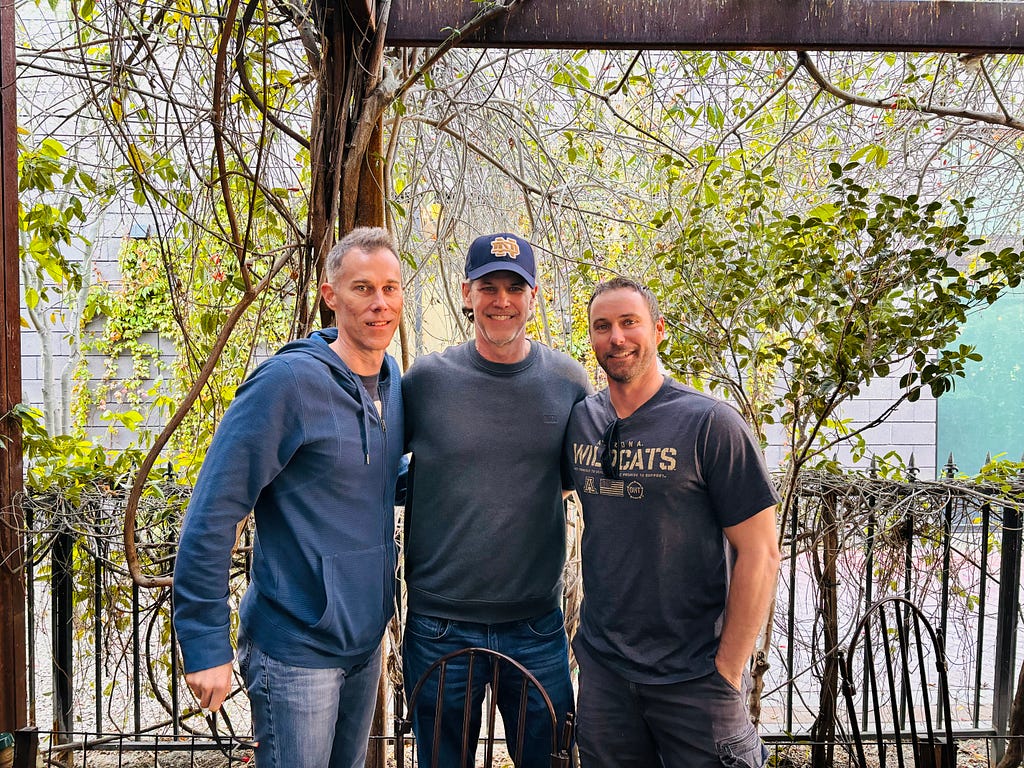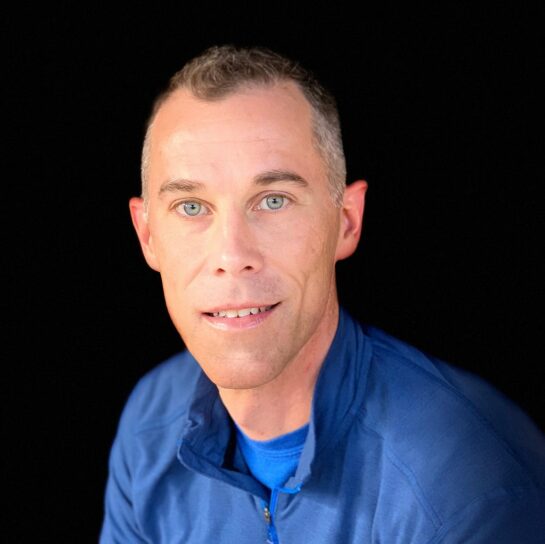An Interview With Chad Silverstein
Surround yourself with friends who can help you on your path toward inner progress. I meet regularly for coffee with a mathematician friend of mine. We don’t see eye to eye on everything, but like Saul says in The Half-Caste, those one-on-one conversations are good for the soul.
Growth is an essential part of life, both personally and professionally. Every day presents an opportunity to learn, evolve, and become better versions of ourselves. But how do we seize these opportunities? How do successful writers, leaders, and influencers ensure they are constantly growing and improving? What daily habits, practices, or mindsets contribute to their continual growth? In this interview series, we are talking to authors, leaders, influencers, and anyone who is an authority about “What We Can Do To Grow Every Day”. As a part of this series, I had the pleasure of interviewing Jason Zeitler.
Jason Zeitler is the author of the novel The Half-Caste (Polyphony Press, 2023) and the novella Like Flesh to the Scalpel (Running Wild Press, 2018), and his stories and essays have appeared in the Journal of Experimental Fiction, Midwestern Gothic, Two Thirds North, and elsewhere. He lives in Tucson with his wife and son.
Thank you so much for your time! I know that you are a very busy person. Our readers would love to “get to know you” a bit better. Can you tell us your “Origin Story”? Can you tell us the story of how you grew up?
I was born and raised in South Dakota and am of humble origins. I spent my early childhood in Mitchell, home to the Corn Palace. When I was in seventh grade, my family and I moved to Rapid City, where I lived until I graduated from high school. I’m far from the person I was then — I went to college in Virginia and have returned to South Dakota for short visits only a few times since — but it’s impossible for me to fully escape my childhood. The things I experienced growing up — caroling hayrides, ice skating, trout fishing, etc. — are forever a part of who I am. In my novel The Half-Caste, one of the two main characters, Saul Maccabee, can’t escape his past, either. He has renounced his Jewish faith, but the things he learned about Judaism as a child constantly creep into his thoughts. They are a part of who he is, no matter how old he gets or the distances, literally and figuratively, he travels from his origins.
Can you tell us a bit about what you do professionally, and what brought you to this specific career path?
I’m a writer. I’ve mostly written short stories and essays, but after the publication of The Half-Caste, I realized I was more interested in long-form fiction. So I’m currently working on a second novel, which is set in Germany, India, and Sri Lanka during the 1930s and 1940s. I took the circuitous route to become a writer — I was a consulting economist for about 15 years before I had my first story published — but I’d say my interest in writing goes back to my time at the University of Virginia. I majored in English in what was then the modern-studies program, which focused on the turn of the twentieth century. As part of that program, I read literature, philosophy, psychology — anything that could be considered modernist. It sparked a life-long interest in the “inter-war years.” The Half-Caste is set during this period, in England and Sri Lanka.
Thank you for all that. Let’s now turn to the main focus of our discussion about Personal Growth. To make sure that we are all on the same page, let’s begin with a simple definition. What does “Personal Growth” mean to you?
I think of personal growth in terms of inner progress, which can be defined as one’s level of empathy for others and the extent to which one sees the way things are and beyond one’s own personal biases. If that sounds Buddhist, it’s because it is. The two main characters in The Half-Caste are on this trajectory toward achieving maximum inner progress.
Why do you believe that it’s important to commit to growing every day?
We all should strive to grow daily because if enough people in a society stagnate and live insular or fanatical lives, that society will regress instead of moving forward and will become a less attractive place to live in. We’ve seen in the United States recently what happens when the insecurities of a minority of people drive them to try to force their small-minded and backward beliefs onto others. It’s a kind of fanaticism. Something similar happened during the 1930s with communist and fascist movements.
What are the key upsides for those who mindfully engage in a journey of personal evolution?
Once a certain level of personal evolution is achieved, we as individuals realize that helping others is more important than helping ourselves, and that in itself becomes its own reward. Selfless devotion to others is probably the closest we’ll ever come to attaining true happiness.
When we stop evolving in intentional ways, what do you think are the biggest downsides?
We just become mindless automatons, doing things habitually or through the use of rules of thumb. Such behavior requires less brainpower, but it also makes us less fulfilled as individuals.
What specific practices, if any, do you have in place to ensure that you don’t become stagnant in life?
Writing is my way of avoiding stagnation. I use the characters I create to explore new ways of thinking and to discover who I am and what I know. Not everyone has the luxury of writing, but anyone can learn about Theravada Buddhism and maybe even meditate if they have the discipline and stamina for it. Just spending a little time thinking about why we behave in certain ways will bear fruit and help us on our path toward inner progress.

Is there any particular area of your life where you are most committed to growth (e.g., spiritually, professionally, socially, internally, relationally)?
I think all the areas of growth are interconnected. I’m most committed to improving my writing, but as I do that, because of the things I mentioned previously about inner progress, I simultaneously improve internally, relationally, socially, and spiritually.
Here is the primary question of our discussion. If you could offer five tips to readers on how to stimulate and perpetuate self-growth, what would they be? If you can, please share a story or an example for each.
1. If you can, write to learn what you know and who you are. It doesn’t have to be in the form of narrative, just journal entries would suffice. After I wrote The Half-Caste, I realized that I wanted to be like the book’s two main characters, Vernon and Saul. Presumably that’s why I created them the way I did. I’ve now made it a personal goal to fight against antisemitism and other forms of racism and to promote social justice.
2. Read a lot and broadly. Reading broadly is one of the fastest ways to grow because it allows you to make connections across disciplines, and that in turn can lead to creativity.
3. Surround yourself with friends who can help you on your path toward inner progress. I meet regularly for coffee with a mathematician friend of mine. We don’t see eye to eye on everything, but like Saul says in The Half-Caste, those one-on-one conversations are good for the soul.
4. Do volunteer work. Helping others is also good for the soul.
5. Exercise regularly. Before you can have a healthy mind, you have to have a healthy body.
What advice would you give to someone who feels stuck and unsure of how to start their personal growth journey?
If you’re in a rut, step outside your comfort zone and do something unusual or original. This will help kickstart change in your life. Changing your routines and your behavior is one of the most difficult things to do when they’re ingrained. But shaking up your routine will make it easier to change in other, more meaningful ways as well.
Are there any books, podcasts, or other resources that have significantly contributed to your personal growth?
There isn’t a particular book that contributed to my growth, but reading dozens of books about Theravada Buddhism, as well ones on behavioral economics, helped me to look at things differently and from different angles. As a result of that, I now tend to think more metaphorically.
You are a person of great influence. If you could start a movement that would bring the most amount of good to the most amount of people, what would that be? You never know what your idea can trigger. 🙂
Everyone should follow their own passions, and there are obvious limitations related to time and money, but if I could start a movement, it would be for people to go out and do volunteer work en masse. If the average person were to help others routinely, there would be less polarization in American society, and we would all be much happier. But even if you can’t give your time to a worthy cause for whatever reason, you can always give your money. I personally have difficulty engaging in certain volunteer activities because of an injury I sustained in the Marine Corps at the age of twenty-one, so I often donate money when I can’t donate time.
How can our readers further follow your work online?
I have a Goodreads blog. It’s temporarily on hold, but I expect that after my talk about The Half-Caste at the Tucson Jewish Museum & Holocaust Center this month, and after similar talks at JCCs and Jewish federations around the country, interest in what I have to say will increase, and at that point I’ll resume making blog entries. The Half-Caste and my story collection The Breatharian and Other Stories are available everywhere books are sold.
Thank you so much for sharing these important insights. We wish you continued success and good health!
About the Interviewer: Chad Silverstein, a seasoned entrepreneur with over two decades of experience as the Founder and CEO of multiple companies. He launched Choice Recovery, Inc., a healthcare collection agency, while going to The Ohio State University, His team earned national recognition, twice being ranked as the #1 business to work for in Central Ohio. In 2018, Chad launched [re]start, a career development platform connecting thousands of individuals in collections with meaningful employment opportunities, He sold Choice Recovery on his 25th anniversary and in 2023, sold the majority interest in [re]start so he can focus his transition to Built to Lead as an Executive Leadership Coach. Learn more at www.chadsilverstein.com
Growing Every Day: Jason Zeitler Of Polyphony Press On What We Can Do To Grow Every Day was originally published in Authority Magazine on Medium, where people are continuing the conversation by highlighting and responding to this story.
